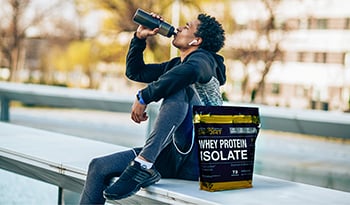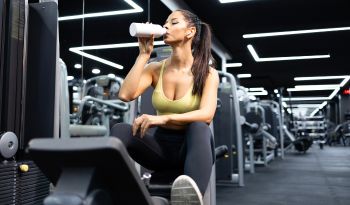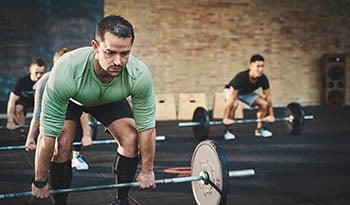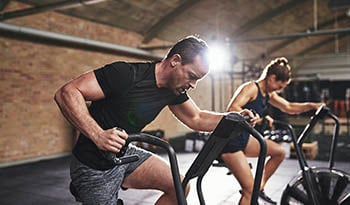Un allenatore di forza condivide cosa mangiare prima e dopo le sessioni di allenamento pesante
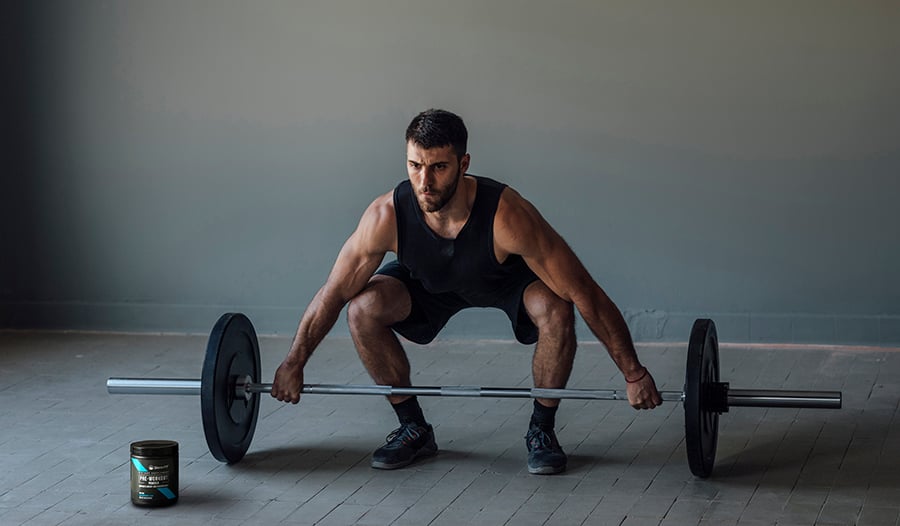
Se ti alleni o ti alleni regolarmente, probabilmente avrai esplorato l'argomento dell'alimentazione pre e post-allenamento. Questo comporta l'esplorazione di opzioni, strategie e idee per massimizzare le prestazioni e ottimizzare il recupero dopo l'allenamento. L'alimentazione pre e post-allenamento è un argomento importante da considerare per una serie di motivi.
Per cominciare, riconoscendo l'alimentazione pre-allenamento, possiamo assicurarci di essere pronti a dare il meglio di noi stessi, indipendentemente dall'ambiente in cui ci troviamo. Quindi, riconoscendo l'importanza di alimentarci dopo l'allenamento, possiamo raddoppiare il recupero e crescere di conseguenza in base ai nostri obiettivi.
In questo articolo parleremo di una serie di strategie per alimentarsi prima e dopo l'allenamento.
Nota: nel titolo faccio riferimento a "pesante". Nel contesto di questo articolo, per "pesante" si intende qualsiasi forma di esercizio e allenamento mirato che richieda uno sforzo. In sostanza, non voglio che tu pensi che questo articolo sia destinato solo a chi solleva fisicamente carichi pesanti.
Cos'è l'alimentazione pre e post allenamento?
L'alimentazione pre e post-allenamento prevede l'assunzione strategica di alimenti, liquidi e integratori per lo sport , studiati per promuovere le prestazioni, sostenere il recupero e l'efficacia complessiva della dieta.
A volte ci si può imporre di pensare che solo "una" cosa sia l'alimentazione pre e post-allenamento (ad esempio pensare che l'alimentazione post-allenamento implichi bere un frullato proteico ). ), quindi in questo articolo affronteremo l'argomento da una prospettiva più macro che tiene conto di qualsiasi forma di comportamento o abitudine alimentare mirata che precede o segue un allenamento.
A chi dovrebbe interessare l'alimentazione pre e post allenamento?
Se stai leggendo questo articolo e la parola "pesante" ha attirato il tuo interesse e ha risuonato con te, allora probabilmente dovresti almeno fare attenzione alla tua alimentazione pre e post allenamento.
Quando parliamo di alimentazione pre e post allenamento, dobbiamo ricordare le differenze contestuali nelle nostre vite individuali. Il tuo modo di allenarti non è il mio, e il tuo modo di alimentarti sarà diverso dal mio. Questo è importante perché l'individualizzazione ci fornirà un quadro migliore per costruire strategie di alimentazione pre e post-allenamento che funzionino davvero per noi.
Quindi, la domanda rimane: chi ha davvero bisogno di preoccuparsi dell'alimentazione pre e post-allenamento?
In realtà, si può affermare che tutti coloro che vogliono dare il meglio di sé e recuperare al meglio il proprio potenziale dovrebbero almeno prendere in considerazione una qualche forma di strategia pre e post-allenamento.
L'alimentazione pre-allenamento diventa sempre più importante per chi svolge attività ad alta intensità in cui si fa affidamento su diverse riserve energetiche. Inoltre, l'alimentazione pre-allenamento può essere fondamentale per chi è a dieta e lavora in deficit calorico. Dato che questa categoria di persone lavora già con risorse energetiche limitate, programmare i pasti in base agli allenamenti può aiutare a migliorare le prestazioni quando l'energia non è così prontamente disponibile.
L'alimentazione post-allenamento è altrettanto importante per chiunque voglia assicurarsi di fornire al proprio corpo i nutrienti da utilizzare per il recupero. Chi esegue allenamenti più duri, come i due giorni, o si allena in deficit calorico dovrebbe essere un po' più attento all'alimentazione post-allenamento rispetto al pubblico in generale.
Nella sezione che segue parleremo delle specifiche dell'alimentazione pre e post-allenamento e delle migliori pratiche. In questa sezione voglio chiarire che preoccuparsi dell'alimentazione prima e dopo l'allenamento non è mai una cosa negativa, a patto di contestualizzarne l'importanza per le nostre esigenze e di non creare fattori di stress arbitrari (ad esempio, pensare di avere solo 30 minuti per consumare un frullato proteico dopo l'allenamento perché sia efficace: non è così).
Strategie nutrizionali pre e post allenamento
Ci sono molti modi diversi per alimentarsi prima e dopo un allenamento. Qui di seguito ti illustrerò alcuni principi fondamentali da tenere a mente per quanto riguarda l'alimentazione pre e post-allenamento, poi ti proporrò alcune riflessioni da tenere a mente quando sceglierai le opzioni per te stesso.
Cosa mangiare prima dell'allenamento
Quando consumiamo pasti e liquidi, è importante ricordare che, a seconda della composizione del nostro apporto (ripartizione dei macronutrienti del pasto), è probabile che si verifichi un certo livello di digestione nell'organismo.
Per quanto riguarda l'alimentazione pre-allenamento, alcune linee guida di base a cui tendere che coincidono con le attuali raccomandazioni della ricerca sono:
- Pasto: 30g di carboidrati + 30g di proteine
- Tempo: ingerito da circa 45 minuti a 1 ora prima dell'allenamento. Il consumo del pasto pre-allenamento può variare, ma il suggerimento generale è di 45 minuti o 1 ora.
Nota: la tempistica e la composizione dei pasti possono subire delle variazioni, in quanto dobbiamo tenere conto di ciò che ci fa sentire e rendere al meglio. Ricorda che si tratta di suggerimenti e non di un elenco definitivo di "ciò che devi mangiare" per alimentare un ottimo allenamento.
Cosa mangiare dopo un allenamento
Dopo un allenamento, in particolare un allenamento di resistenza, il nostro corpo è pronto per la sintesi proteica muscolare (MPS), che è il processo con cui il nostro corpo utilizza le proteine per la costruzione e il recupero dei muscoli.
Quando i sollevatori parlano di "finestra anabolica" post-allenamento, spesso si riferiscono al fatto di sfruttare il tempo successivo all'allenamento per creare un ambiente più anabolico nel corpo, in quanto il potenziale MPS sarà più alto dopo lo sforzo energetico. Ecco perché si consiglia di consumare una fonte di proteine e carboidrati di alta qualità nel post-allenamento: entrambi possono sostenere le MPS.
Ora, a differenza della saggezza convenzionale secondo cui la finestra anabolica è un periodo di tempo breve e limitato dopo l'allenamento, la ricerca ha suggerito che questa finestra è probabilmente più vicina alle 4-6 ore post-allenamento.
Per quanto riguarda i suggerimenti per i pasti post-allenamento, usa i seguenti suggerimenti per costruire i pasti di conseguenza dopo gli allenamenti.
- Fonte proteica di alta qualità: In genere, 20-40 g sono sufficienti e rappresentano una buona regola per aumentare le MPS. Le fonti includono frullati proteici, pollo, albumi, uova, tacchino, manzo magro, bisonte e qualsiasi altra fonte proteica a basso contenuto di grassi.
- Fonte di carboidrati di alta qualità: In genere sono sufficienti 30-60 g di carboidrati, che possono variare.
Nota: la finestra di 4-6 ore di cui sopra sarà diversa per gli atleti d'élite, per chi fa due giorni e per altri scenari specifici.
Considerazioni importanti per le prestazioni e il ripristino
Ora che disponiamo di inquilini e raccomandazioni per i pasti pre- e post-allenamento, è il momento di costruire di conseguenza i pasti che vi aiuteranno a sfruttare le vostre prestazioni e il recupero post-allenamento .
- Costruite dei pasti base: Questi pasti prevedono l'assunzione di liquidi e alimenti che "vanno d'accordo" con il corpo prima e dopo l'allenamento. Ad esempio, se vi piace allenarvi a stomaco meno pieno, potrebbe essere utile optare per frullati proteici e carboidrati facilmente digeribili prima dell'allenamento.
- Scalare i pasti in base agli allenamenti: L'idea di scalare i pasti significa rimanere fluidi con i pasti base in base a ciò che si sta facendo per l'allenamento. Alcuni allenamenti richiederanno probabilmente più carburante di altri, quindi ricordate di scegliere i pasti che alimentano l'attività che state svolgendo. Ad esempio, si potrebbe optare per un pasto più abbondante dopo un allenamento ad alto volume, per essere sicuri di rifornire il corpo di carburante in modo adeguato per raggiungere obiettivi come l'ipertrofia muscolare.
- Utilizzate gli integratori quando viaggiate o siete impegnati: Non tutti i giorni sono perfetti per quanto riguarda l'alimentazione pre e post-allenamento, ed è qui che gli integratori possono essere utili. Se, ad esempio, siete pieni di impegni e dovete andare al lavoro subito dopo l'allenamento, mettete in valigia un frullato proteico per facilitarne il consumo e fornire al corpo una fonte proteica di alta qualità.
Se siete persone che non hanno fame prima o dopo l'allenamento, allora l'uso di frullati proteici o di integratori di carboidrati può essere utile per assicurarvi una preparazione e un recupero adeguati. Per quanto riguarda l'alimentazione pre e post-allenamento, cercate di mantenere un'alimentazione fluida. Tenete presente la vostra individualità e date priorità alle vostre prestazioni personali, alle vostre sensazioni e alla vostra adesione.
ESONERO DI RESPONSABILITÀ:Questo Centro Benessere non intende fornire diagnosi...
















































































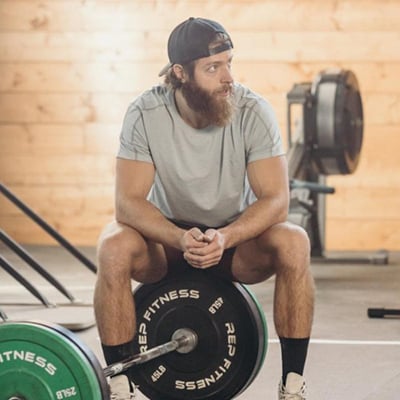
 Indice
Indice



